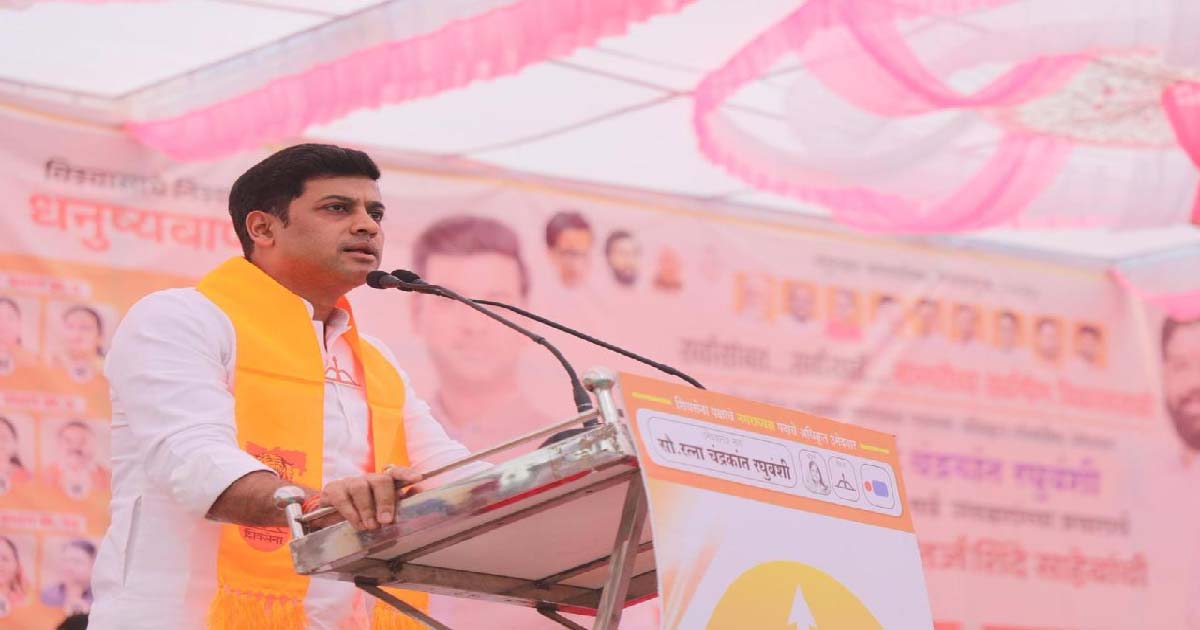General
Tale of Mumbai’s rising trend of air pollution
Every winter, smog-filled days and nights across entire north India are a common thing and by contrast, the western region looks much cleaner.
However, a new analysis of regional air pollution levels by the Centre for Science and Environment (CSE) has shown that proximity to the sea has not helped in containing the increasing air pollution in the financial capital, Mumbai.
Even though winter pollution levels in the western region are not as high as that seen in the Indo-Gangetic Plains due to its proximity to the sea and improved ventilation, the levels have been seen to be increasing despite the geographical advantages and favourable meteorology, the CSE analysis said.
In other words, increasing air pollution is not restricted to winters but is now an yearlong problem in Mumbai too.
“The number of bad-air days in Mumbai have doubled between 2019 and 2021, while good days are down by 20 per cent. This underscores the urgency of scaling up action across all sectors to prevent further worsening and to arrest the trend in this region,” executive director, research and advocacy, CSE, Anumita Roychowdhury said.
This new analysis, released on Wednesday, of real time pollution data is part of CSE’s air quality tracker initiative and also has an assessment of annual and seasonal trends in PM2.5 concentration for the period January 1, 2019, to January 9, 2022.
This analysis is based on the real time data available from the current working air quality monitoring stations. Review of data availability from the automated monitoring stations in the region under the continuous ambient air quality monitoring stations (CAAQMS) programme of Central Pollution Control Board (CPCB) shows major data gaps. When it comes to data availability calculated as number of days with adequate PM2.5 data for computation of a valid 24-hour average, among Mumbai stations, Kurla in east-central Mumbai had only 55 per cent data while Malady (West) in north Mumbai came up with 68 per cent.
“It is not clear why these stations have such poor data availability despite minimal problems of electricity and internet connectivity in the region,” said CSE’s programme manager, Urban Data Analytics Lab, Avikal Somvanshi.
Like other cities in Maharashtra and Gujarat, studied as part of the same analysis by CSE, Mumbai too has indicated a rising trend in annual PM2.5 levels after an initial drop during 2020 (when there were lockdowns) with a rebound and a rising trend visible in 2021.
The CSE analysis to indicate that the number of bad-air quality days are increasing in Mumbai is supported with Air Quality Index (AQI) data. Daily AQI analysis based on 10 oldest stations shows a 20 per cent drop in the number of good AQI days in the city between 2019 and 2021 — while days with poor or very poor AQI have doubled.
South Mumbai has the worst air within the city during winter: In December 2021, the stations in south Mumbai reported significantly higher PM2.5 levels compared to the rest of the city.
Mazgaon with a monthly average of 134 micrograms per cubic metres was the most polluted neighborhood of the city, followed by Navy Nagar, Colaba (124 micrograms per metre cube), Kurla (101 micrograms per metre cube), Vile Parle-West (101 micrograms per metre cube) and Worli (97 micrograms per metre cube).
Khindipada, in north Mumbai, which is at the edge of Sanjay Gandhi National Park in the suburbs with a monthly average of 54 micrograms per metre cube was the least polluted neighborhood. Bandra and Malad (West) reported low numbers, but the values are not considered valid due to a significantly large amount of missing data from these two stations, the CSE analysis showed.
Mumbai Press Exclusive News
The 612th Urs of Mahim Makhdoom Faqih Ali Mahimi will begin on November 28, and the festival will be held from December 5: Sohail Khandwani

Mumbai: Mumbai The 612th Urs of Hazrat Makhdoom Faqih Ali Mahimi (may Allah have mercy on him) will be celebrated with utmost devotion and respect at Astana Makhdoom on November 28. A grand service will be held on November 28. The next day, on November 29, the eighth night and sandal will be presented. Along with this, a flag hoisting ceremony, a gathering of listeners and Quran recitation will also be held. The Dargah Committee has completed preparations for this. The Dargah has been decorated like a bride. In view of the Urs and the fair, the police have also made necessary security arrangements. Sohail Khandwani, Managing Trustee of the Dargah Committee, said that in the backdrop of the Urs and fair, the Dargah administration has made necessary arrangements. A grand service will be held at Astana Makhdoom on November 28 and a grand night flag hoisting ceremony, a gathering of listeners and Quran recitation will be held on November 29. The pilgrims are appealed to attend Astana Makhdoom with due respect. He said that the police and the Dargah administration jointly make security arrangements. Along with this, the annual fair will also be held on December 5. The first sandal will be presented by the police and the festival will continue till December 14. In view of this, the traffic police has also shifted the traffic route. Food stalls and entertainment are also available in the festival. The police perform 24-hour services and duties for the festival. Along with this, volunteers of the dargah are also assigned with the police. Police are also deployed on the premises of the dargah including traffic control. Sohail Khandwani has appealed to the sandal committee to take care of Sharia matters during the sandal presentation and not to violate noise and noise pollution and to present sandal at the dargah with courtesy and respect. The annual festival of Mumbai Police will start from December 5. The police is also ready for this. Sohail Khandwani said that the police have a lot of devotion to Baba, therefore they make the arrangements of the dargah with dedication and the police manage it well even in the face of a crowd.
Maharashtra
Shiv Sena wave in North Maharashtra, Dr. Shrikant Shinde takes charge of election campaign

Mumbai Nandurbar: Shiv Sena is on a wave in North Maharashtra. A large number of “Ladli Bheenas” and youth are participating in the rallies of Shiv Sena youth leader Dr. Shrikant Shinde. Dr. Shinde launched his election campaign in North Maharashtra today. Addressing the gathering, he said that the Mahayoti government has taken strong steps to empower women and youth, which is why Maharashtra’s Ladli Behna Yojana is becoming self-reliant. Attacking the opposition, he said that many opposition leaders were opposing the “Ladli Behna Yojana” but under the leadership of Deputy Chief Minister Eknath Shinde, this scheme was implemented and it will not be stopped under any circumstances. The opposition is only spreading confusion, Ladli Behna will respond with their votes. Dr. Shrikant Shinde explained that in the last three years, Shiv Sena has reached every corner of Maharashtra under the leadership of Eknath Shinde. Shinde Sahib is empowering his workers by holding eight meetings every day. He has an Urban Development Department, which has resulted in record-breaking funding for the backward villages of Maharashtra, paving the way for strong rural development.
Dr. Shrikant Shinde criticized UBT and said that some people are experts in criticizing, but they have never done any concrete work for the people. That is why today Mahayoti candidates are seen everywhere. The people are well aware of the state of the opposition.
Maharashtra
Kalyan College Namaz Controversy: SIO Demands Action Against Perpetrators

Mumbai: SIO has demanded strict action against the hooliganism of Bajrang Dal and Vishwa Hindu Parishad on offering prayers in Mumbai’s Kalyan College. Here, State Secretary SIO Aziz Ahmed said that
The incident that took place at Ideal College of Pharmacy and Research in Kalyan is highly condemnable and unacceptable, where hooligans belonging to Bajrang Dal entered the college campus, threatened and harassed Muslim students for offering prayers and even tried to make them sit in front of the statue of Chhatrapati Shivaji Maharaj. This incident is a direct attack on religious freedom and the sanctity of the educational campus.
SIO strongly condemns this incident and expresses complete solidarity with the affected students. We demand that strict action be taken against the accused at the earliest, the college administration ensure the safety of the students and take concrete steps to prevent such incidents in the future.
We appeal to the entire student community to maintain religious harmony and remain united against such sectarian attitudes and demonstrate strong solidarity.
-

 Crime3 years ago
Crime3 years agoClass 10 student jumps to death in Jaipur
-

 Maharashtra1 year ago
Maharashtra1 year agoMumbai Local Train Update: Central Railway’s New Timetable Comes Into Effect; Check Full List Of Revised Timings & Stations
-

 Maharashtra1 year ago
Maharashtra1 year agoMumbai To Go Toll-Free Tonight! Maharashtra Govt Announces Complete Toll Waiver For Light Motor Vehicles At All 5 Entry Points Of City
-

 Maharashtra1 year ago
Maharashtra1 year agoFalse photo of Imtiaz Jaleel’s rally, exposing the fooling conspiracy
-

 National News1 year ago
National News1 year agoMinistry of Railways rolls out Special Drive 4.0 with focus on digitisation, cleanliness, inclusiveness and grievance redressal
-

 Maharashtra1 year ago
Maharashtra1 year agoMaharashtra Elections 2024: Mumbai Metro & BEST Services Extended Till Midnight On Voting Day
-

 National News1 year ago
National News1 year agoJ&K: 4 Jawans Killed, 28 Injured After Bus Carrying BSF Personnel For Poll Duty Falls Into Gorge In Budgam; Terrifying Visuals Surface
-

 Crime1 year ago
Crime1 year agoBaba Siddique Murder: Mumbai Police Unable To Get Lawrence Bishnoi Custody Due To Home Ministry Order, Says Report












